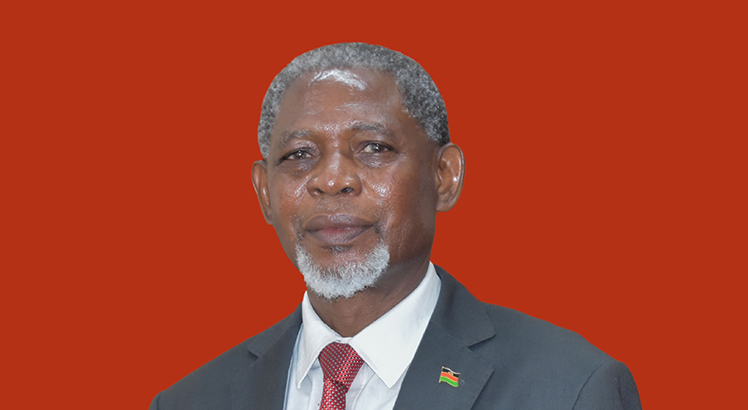Govt moves on 50+1, others
Parliament is set to debate and enact a comprehensive legal framework that seeks to guide the conduct of elections in the country, including clarifying on the 50-percent-plus-one vote in the presidential election.
Three electoral reforms Bills are lined up for tabling by Minister of Justice Titus Mvalo during the five-week Mid-Year Budget Review Meeting of Parliament which opened in Lilongwe on Monday. The three Bills are Constitution (Amendment), Electoral Commission Act (Amendment) and Presidential, Parliamentary and Local Government Elections, according to the Order Paper, an outline of business to be tackled in Parliament.
The proposed changes include cementing the law that the winner of the presidential election should amass 50-percent-plus-one vote of the valid votes cast and that the second poll be held within 60 days in the event of a tie or where majority is not attained during the first poll.

The Constitution (Amendment) Bill also proposes to change Section 80 which provides for declaration of a presidential winner in an election to include the 50-percent-plus-one provision.
Reads the proposed amendment: “[2]. The President shall be elected by a majority of more than 50 percent of the valid votes cast through direct, universal and equal suffrage and where a majority of more than 50 percent is not obtained by any candidate in the first poll, a second poll shall be held within 60 days after declaration of the results in the first poll in accordance with an Act of Parliament.”
The amendment is more explicit in Section 35 of the proposed Presidential, Parliamentary and Local Government Elections (PPLE)
Bill which stipulates who will contest in the second poll in cases where a majority of more than 50 percent is not obtained by any candidate in the first poll.
“[Those to contest in the second poll are] (1a) the highest and second highest number of valid votes cast in the first poll; or (b) an equal number of valid votes cast in the first poll, being the highest votes amongst the candidates that stood in the election,” reads the provision.
The proposed changes come about a year after law professor Mwiza Jo Nkhata last December co-authored a paper faulting the High Court of Malawi sitting as a Constitutional Court and the Malawi Supreme Court of Appeal for interpreting majority in the Constitution to mean 50-percent-plus-one vote in electing the country’s President.
In a brief interview from Tanzania yesterday, he said details on how the second presidential poll will be held have been moved to the PPLE proposed Bill because it contained “too much detail” for the Constitution. He also noted “a few new proposals” in the electoral reforms Bills.
He said: “Time for a fresh election is now 60 days from the originally proposed 30 days. They have removed from the Constitution the requirement that the second poll should be by the two top candidates. They have also changed the language after ‘equal suffrage’. It now doesn’t say ‘where such majority is not obtained’.”
In their legal analysis titled ‘The Nullification of the 2019 Presidential Election in Malawi: A Judicial Coup d’État?’ Nkhata, United Nations Office of the High Commissioner for Human Rights human rights officer Anganile Mwenifumbo and Mbendera & Nkhono Associates
legal firm partner Alfred Majamanda argued that both courts drew definitive inspiration from parliamentary practice in Malawi which requires all ‘majority’ decisions to be made using a 50-percent-plus-one vote formula unless a special majority is expressly stipulated.
They said: “Both courts may have forcibly assumed the same meaning for the term ‘majority’ even though the context in which it is used, including within the Constitution, are varied.
“At the very least, both courts are guilty of failing to demonstrate an awareness of the contextual nuances in the use of the term ‘majority’ across the Constitution which appears at least 15 times in the Constitution.”
Other proposed amendments to the Constitution relate to boundary reviews which will be conducted after 10 years, from the current five years.
Section 63(2)(b) of the Constitution is also being amended to prescribe that any by-election for parliamentary and local government elections be held in the next quarter of the calendar year after the seat of the member becomes vacant.
The amendment further proposes that no by-election shall be held where a vacancy occurs within 12 months to a general election.
Malawi Electoral Commission director of media and public relations Sangwani Mwafulirwa said they proposed 10 years for boundaries because the national census is conducted once in 10 years.
He said: “The boundary review process uses data from the census and we would want to use recent data by having the boundary review held immediately after the census.
“Further, consolidation of the two Acts [Presidential and Parliamentary Elections Act and Local Government Elections Act] is meant at having one law that will guide on the conduct of the three elections which in some cases had different provisions.”
The ‘majority’ question was first determined by the Supreme Court in 2000, in the case of Chakuamba and Others v Attorney General and Others.





